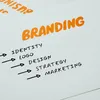Consumer psychology books: 5 must-reads for marketers
Dive into the world of consumer psychology with these 5 must-read books!
Every customer has a unique purchasing habit. Thanks to consumer psychology, marketers can study how users perceive brands and make a decision to buy. This can help startups to position their product or services more effectively.
Here are the top 5 books that revolve around the concept of consumer psychology and how to build effective business strategies! Read along!
Top 5 books on consumer psychology
1. Decoded: The Science Behind Why We Buy
Authored by Phil P. Barden in 2013. As the name suggests, this book unveils the "science" as to why consumers buy certain products and what drives them to do so. The author has shared research on consumer's decision-making behaviour.
Based on 5 main psychological insights this guide touches on concepts of behavioural economics to provide a framework for businesses to optimise marketing efforts.
Decoded does not just explain the buying psychology but also shows how marketers can apply this knowledge to differentiate their brand from the rest. Overall, Phil thoroughly explains the scientific approach to smarter marketing practices which is why it is a must-read!

2. Made to Stick: Why Some Ideas Survive and Others Die
Why is it that fake news or stories spread faster than the truth? How does it work? This is exactly what is revealed in Made to Stick written by Chip Heath and Dan Heath. The authors break down why certain ideas spread like wildfire and why others do not.
With a hint of humour and eye-opening principles of winning ideas, this guide helps entrepreneurs, journalists, and teachers to make their ideas stick. Made to Stick explores various tactics such as the Velcro Theory of Memory and curiosity gaps to grab attention.
By understanding the correct way to communicate with an audience, startups can understand how to push their brands into the spotlight.
3. Marketing to Mindstates: The Practical Guide to Applying Behavior Design to Research and Marketing
The third on the list was authored by Will Leach who mainly focuses on applied behavior psychology and behavior economics. He discusses a new approach called "Mindstate Marketing" which helps businesses to learn how to influence. In short, it is a beginner-friendly book for those who are new to the concept of behavioural marketing.
4. The Art of Choosing
People make choices every day and sometimes do not go for what's best, Professor Sheena Iyengar deciphers the psychology behind this. With her fascinating research, she uncovers why having too many options affects decision-making.
Altogether, this book compiles various studies that can help marketers understand the process and present their brand in a way that is easy to choose and be perceived.
5. Influence: The Psychology of Persuasion
Discovering the depths of psychology, author Robert Cialdini has penned down how the art of persuasion works. From years of research that includes various experiments and surveys, Influence provides 6 universal principles to teach readers the skills of persuasion.
Standing on the foundation of marketing, this comprehensive book discovers the psychology of why people say "yes" and how to use this knowledge.
The takeaway
Understanding the thinking behind why consumers tend to buy certain products helps marketers and startups place their brands accordingly. These books share in-depth insights into brand perception and consumer psychology and how they can be transformed so that products are made favourable in the market.








